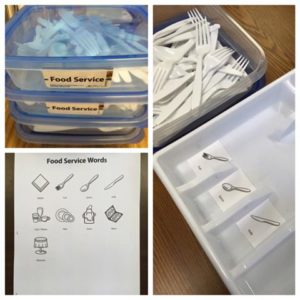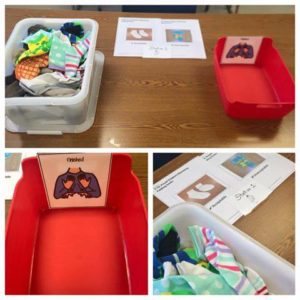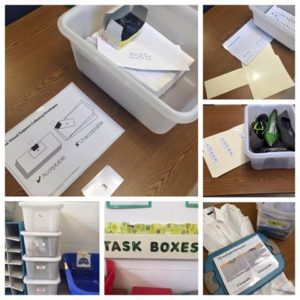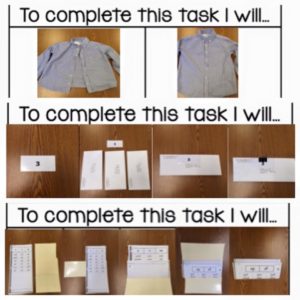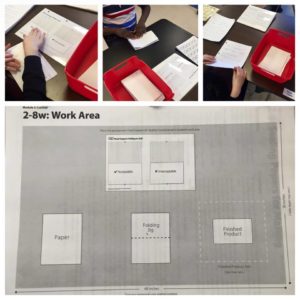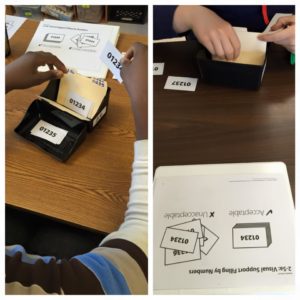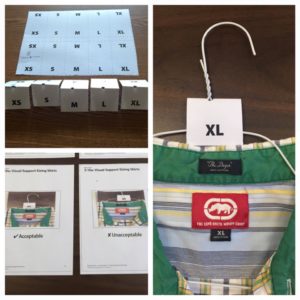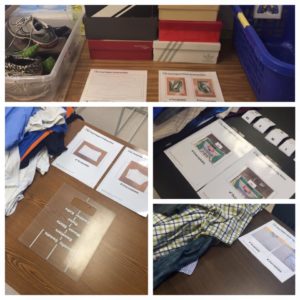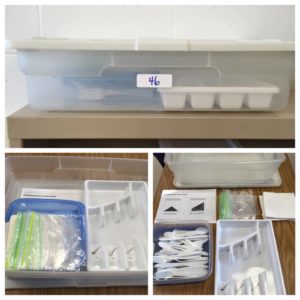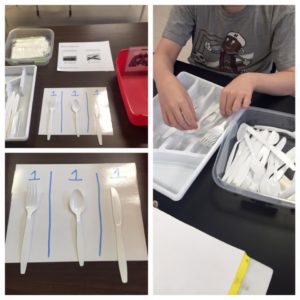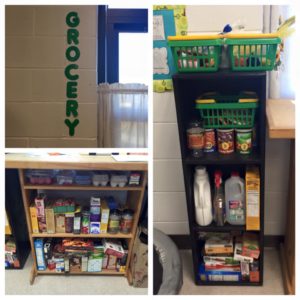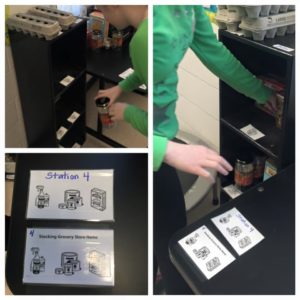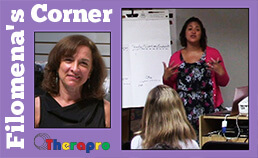
At the Fall “Kick-Off” Saturday Seminar Series presentation on August 25th at Therapro, Angela Mahoney, M.Ed. generated an electric environment infused with her passion for helping students and young adults develop the foundation for “career readiness” skills. Angie is an educator and is the author/creator of I Can Work!. Her seminar, I Can Work! Paving the Path for Vocational Success, drew an audience of occupational therapists, parents, and educators, who participated in active dialog with Angie and each other throughout the seminar.
Angie is an ardent educator who continuously strives to modify, expand, and develop I Can Work! Currently she works as a special education middle school case manager in Danbury, Connecticut. For the past 17 years she has worked with students of all ages in a variety of settings, including a private school where she worked with over seventy-five middle school and high school-aged students on a weekly basis, running an inclusion-based elementary program for students with autism, as well as co-teaching core academic classes as part of a team comprised of fellow middle school educators.
Angie stated her goal as an educator is to “help kids find success.” Throughout her seminar, she provided life skills ideas and pre-vocational activities within a structured framework that is applicable to learners of varied abilities. In order to build career skills, Angie discussed the importance of students learning “Vocational Soft Skills” and “Vocational Hard Skills.” Vocational soft skills are interpersonal skills: language skills, social skills, teamwork, communication skills, time management, and more. Angie reported that research indicates that being able to communicate effectively is the most in-demand soft skill. Learning to use soft vocational skills effectively in a pre-vocational environment helps build confidence for when the student is in an actual work environment. For example, learning to maintain a positive attitude and work well with others will be important skills to develop in any chosen career.
“Vocational Hard Skills” are abilities that can be taught and have three characteristics: can be mastered quickly, can be quantified, and can be built over time. The I Can Work! curriculum consists of 5 modules that focus on career readiness: Job Readiness, Clerical, Retail, Food Service, and Grocery. For each module, related vocabulary is taught, tasks are practiced, and visual supports are provided. In addition to exploring career interests, data collection takes place to track learning and success. Opportunities are provided for students to share and reflect on their jobs. Angie advocated the importance for students to have opportunities at home to reinforce pre-vocational skills learned at school with activities like sorting and folding laundry, filing by letter or word, etc.
After hearing the attendees passionately express the need and importance of a solid pre-vocational program for students, it makes good sense that I Can Work! could fulfill this demand. Angie convincingly demonstrated that this curriculum could provide a strong pre-vocational foundation for all, beginning in elementary school and continuing beyond high school years.
Here are some of the many positive comments from seminar attendees:
“This topic is so needed. I would like to ask my school to pay for Angela to come and speak to my district. Also, since she is a sped teacher, my sped teachers can relate!” – Karen B., Occupational Therapist
“Presented in a manner which is easy to follow and incorporate into the school. Data collection sheets are very helpful.” – Pam M., Occupational Therapist
“I would recommend this seminar to increase awareness in schools and SEPACS, maybe local programs.” Aly M. – Teacher, Parent, ABA
“This seminar “honed in” on the need for an available program for pre-vocational and vocational skills beginning from upper elementary through adult.” – Sue R., Occupational Therapist
Thank you, Angie!
Filomena Connor, MS, OTR/L
August 25, 2018

